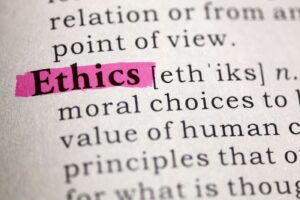Since Hamas’s attack on Israel on October 7, 2023, the concept of “settler colonialism” has been hotly debated in American media and politics. In this interview, author Adam Kirsch joins contributing editor Nathaniel Peters to discuss the concept of settler colonialism and explain how it has shaped the American public’s perception of the state of Israel. Kirsch’s book, On Settler Colonialism: Ideology, Violence, and Justice, was released in August.
Nathaniel Peters: What do people mean by “settler colonialism,” and how is that term used and misused with respect to the state of Israel?
Adam Kirsch: The term settler colonialism was first used in the 1950s and 60s to describe societies like Algeria and Rhodesia. These were territories conquered by European empires where European settlers made up about 10 percent of the total population, dominating a much larger native population. In those countries, the struggle against settler colonialism had a clear political goal: to take power and property from the European colonists and restore it to the native majority.
But in the 1990s, academic theorists began to apply the term “settler colonial” to countries like Australia, Canada, and the U.S., where European conquest happened much earlier and non-indigenous people make up 98 percent of the population. In these places, it was impossible to imagine actual decolonization—the disappearance of non-indigenous people. Instead, settler colonialism became the framework of a critical theory, in which the evils of these societies—which could mean capitalism, patriarchy, environmental depredation, or other things, depending on your point of view—were traced back to the original sin of European settlement.
Start your day with Public Discourse
Sign up and get our daily essays sent straight to your inbox.As for Israel, it is habitually paired with the U.S. as the prime example of settler colonialism in the world today, even though the countries’ histories are extremely different. Israel was not the creation of a European empire but of small groups of Jewish volunteers and refugees. Zionism did not aim to conquer another people’s land but to restore the Jewish people to their own ancient homeland. And the creation of Israel did not involve destroying or replacing the Arab population, though it did mean displacing them, primarily in the 1948 War of Independence, which Arabs remember as the Nakba or “catastrophe.” My main argument in the book is that seeing Israel through a settler-colonial lens leads to ideological distortion and encourages the perpetuation of the Israel–Palestine conflict, rather than solving it.
NP: “Settler colonialism” is ostensibly a secular, progressive concept, but you argue that it operates as a religious one for its proponents. Can you explain more about that?
AK: The ideology of settler colonialism holds that countries like the U.S. are permanently illegitimate because they were founded against the will of the people previously living there. The key move is to suggest that the original crime of settlement is not something that happened in the past—starting 400 years ago in North America—but is a perpetual process still taking place today. As the Australian anthropologist Patrick Wolfe wrote: “Invasion is a structure, not an event.” In this way of thinking, colonialism operates very much like the concept of original sin in Christianity: it is a guilt that we inherit even though we didn’t commit it ourselves. As in Calvinism, we can overcome our guilt only by confessing it—which is why, in certain circles, it is fashionable to introduce oneself as a “settler.” One of the main expressions of the ideology of settler colonialism in North America is encouraging people to renounce “settler ways of being,” a condition of alienation and inauthenticity that is often described in ways that resemble sin.
NP: We also hear repeatedly that Israel is engaged in “genocide,” even though Israel’s military response differs from the systematic slaughter present in Germany in the 1940s or Rwanda in the 1990s. Is this a matter simply of inflammatory rhetoric, or has the definition of genocide become more expansive? If the latter, are there other instances of concept creep shaping the discussion of Israel?
AK: There is no question that Israel’s retaliatory invasion of Gaza over the last year has killed many thousands of Palestinian civilians, and for many protesters, using the term “genocide” to describe the invasion is simply an effective way of calling attention to this crisis. But the term “genocide” also functions as a political shibboleth, implying a way of thinking about Israel that was already common on the Left before October 7, 2023. For theorists of settler colonialism, settlement is genocidal by definition, since it involves destroying an indigenous people in order to replace it. This may or may not be a valid way to think about the settlement of North America, which happened over many generations of war. But it is certainly untrue of Israel. Since 1948, the Arab population of historic Palestine has increased fivefold and now stands at about seven million, equal to the Jewish population. To maintain that Israel is committing genocide, it’s necessary to redefine genocide as a “cultural” or “structural” process—a distinction that makes sense to settler-colonial theorists, but is lost on the general public (and most young protesters).
NP: It seems like the focus on settler colonialism is selective and detached from history. Australia is held up as an inherently unjust society, but there is no condemnation of the Normans for their historical occupation of the British Isles. The U.S. is condemned for seizing the lands of Indian tribes, but particular tribes are not condemned for their own conquests. What explains this? Who counts as indigenous to a place?
AK: Some theorists of settler colonialism try to apply the model to other places and periods, such as the Japanese conquest of Manchuria in the 1930s. But the ideology is almost exclusively concerned with North America, Australia, and Israel, for practical reasons (most of these scholars live in these countries and speak English) and also for political reasons. The goal of studying settler colonialism isn’t to shed light on the past, as a historian would, but to criticize the present and change the future. For these purposes, it’s necessary to make a clear distinction between settler evil and indigenous virtue, even though real history is seldom so clear-cut.
Despair is not a form of justice, but a way of acknowledging that perfect justice is often impossible to achieve.
NP: Your book critiques the ideological use of “settler colonialism” while acknowledging the fact that its proponents are protesting real injustices. What should our response be instead?
AK: There is no doubt that the creation of Israel turned hundreds of thousands of Palestinians into refugees, most of whose descendants now live under Israeli occupation in the West Bank or in the war zone of Gaza. Protesters are rightly indignant at their prolonged suffering. But the ideology of settler colonialism does not aim for peaceful coexistence between Jews and Arabs—the only morally acceptable solution to the conflict. It teaches that Jews are foreign colonizers with no legitimate claim to the land of Israel, and urges that they be expelled and destroyed. This has been the goal of the enemies of Israel since 1948, including Iran today, and it turns the Israel–Palestine conflict into an existential threat that the Jewish state has no choice but to fight at all costs. It also encourages Western bystanders, such as college student protesters, to rejoice in the deaths of Israeli civilians, as many did after October 7, 2023. At the end of the book, I argue that the only way to achieve peace is to stop hoping to unwrite history and focus instead on creating a better future.
NP: I was struck by your invocation of the Talmud’s understanding of “despair” as the proper response to an injustice that cannot be undone without greater injustice. How does this apply to the Israel–Palestine conflict?
AK: “Despair” (yei’ush in Hebrew) is a technical term used in Jewish law in dealing with the ownership of lost and stolen items. The basic idea is that when a person loses a possession through accident, theft, or confiscation, he despairs of getting it back, so he ceases to be its legal owner. To use a Talmudic example: if a tax collector confiscated a man’s cloak, he would be entitled to compensation for it, but he would no longer be the legal owner. After all, the customs collector might sell the cloak to a third party, and if the original owner was still the legal owner, he would be able to demand it back, remedying his own loss by inflicting a loss on the innocent purchaser.
I say in the book that despair is not a form of justice, but a way of acknowledging that perfect justice is often impossible to achieve. Palestinians might want to undo the creation of Israel in 1948, but it can’t be done without endangering the lives of millions of Jews. The Jews, in turn, might want to undo the destruction of the Jewish kingdom by the Roman Empire 2,000 years ago, but it would be absurd to hold today’s Italy responsible for that ancient crime. The only way to actually create a better future is to start with the world we actually live in and move forward—which may require “despairing” of the past, which cannot be changed.
Image by Rokas and licensed via Adobe Stock.














